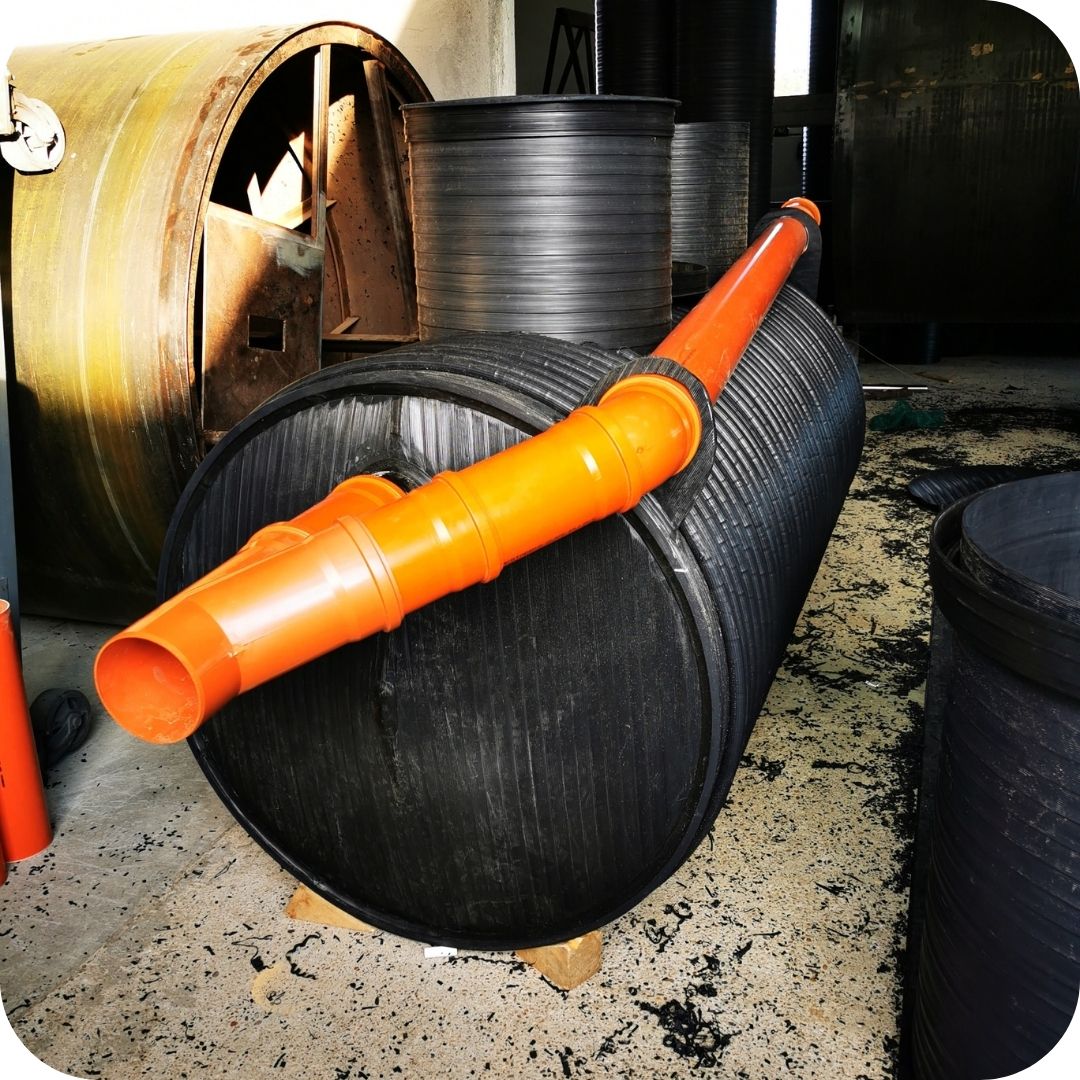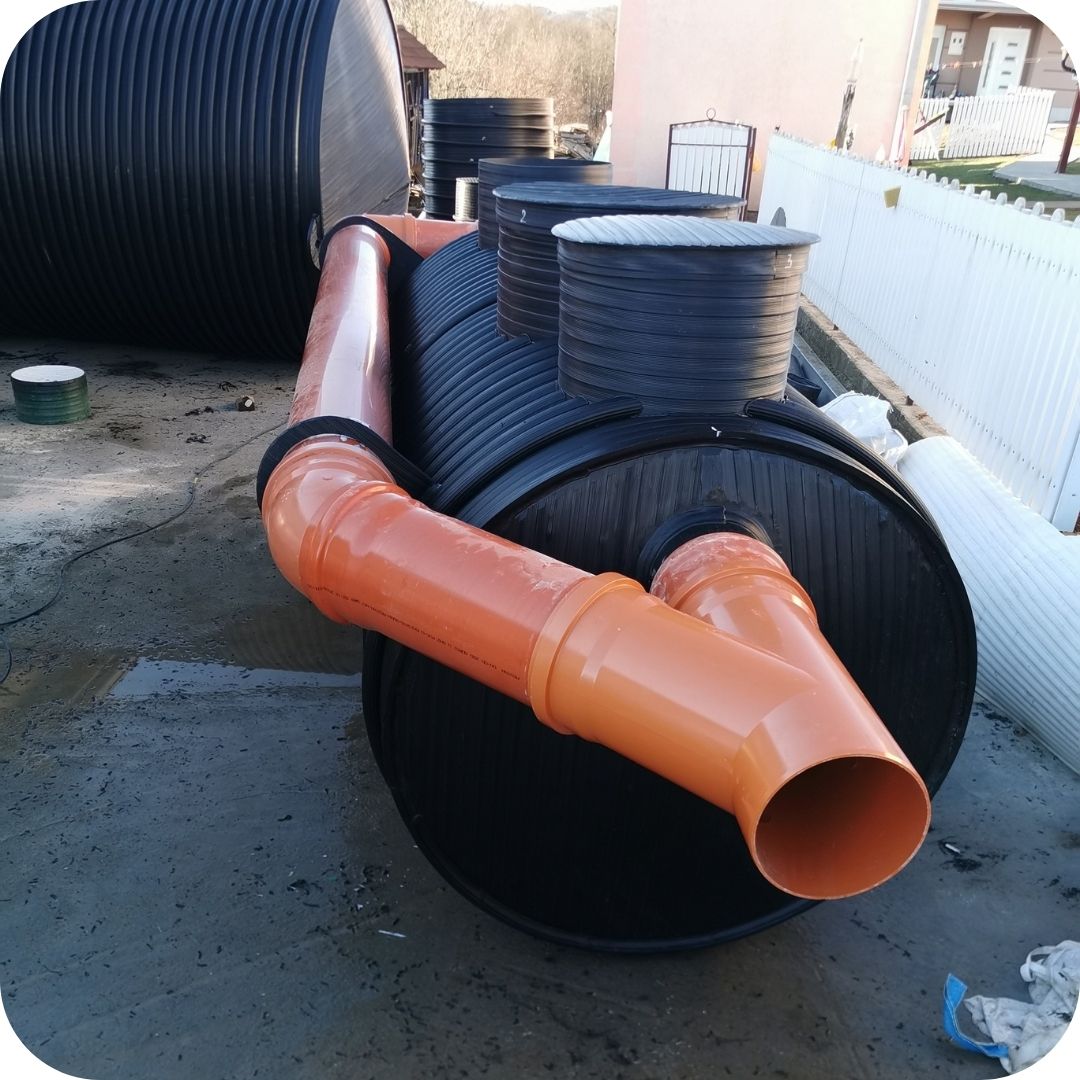Gravity Separators of Oil and Petroleum Derivatives
The gravity separators produced by our company represent an efficient solution for the separation of fats and oils from wastewater. Our separators are based on the principle of the difference in specific weights between water and oil, allowing for the efficient separation of these substances. Each separator is designed as a two-chamber system that optimizes the separation process.
In the first chamber, the wastewater settles, allowing heavier particles such as sludge, sand, and other impurities to settle at the bottom of the chamber. This phase is crucial as it prevents solid particles from entering the oil and fat separation process, which could reduce the efficiency of the separator.
The second chamber is the heart of our separator, where oil and petroleum are separated from water. Due to the different specific weights, oil and petroleum naturally float on the surface of the water, from where they can be easily removed. This process is completely natural and does not require additional energy, achieving high energy efficiency of the entire system.
Our gravity separators are designed with attention to detail, ensuring that the separation process is smooth and efficient. The materials from which the separators are made are of high quality, corrosion-resistant, and durable, guaranteeing reliable operation and minimal maintenance.
They are designed to be easily integrated into existing wastewater treatment systems offering a reliable solution for industries, catering facilities, and other applications where efficient removal of oil, petroleum, and fats from wastewater is needed. Our gravity separators contribute to environmental protection and the maintenance of clean waters, thereby raising the ecological standard of your business.





